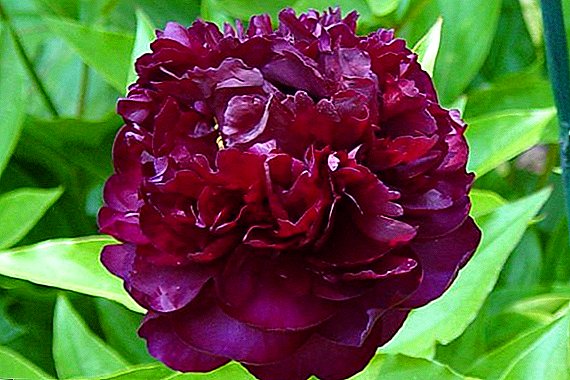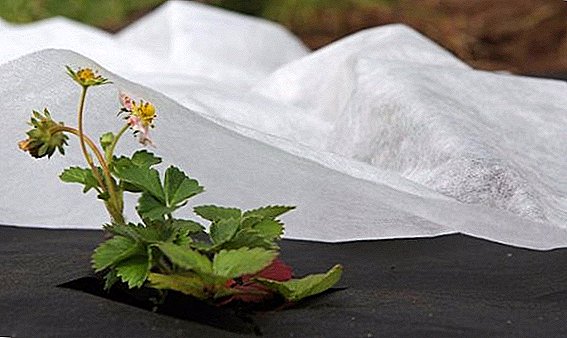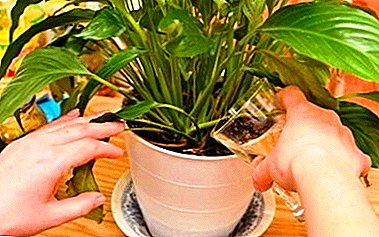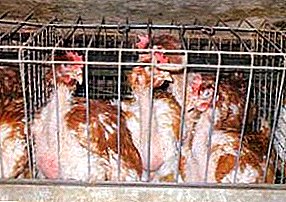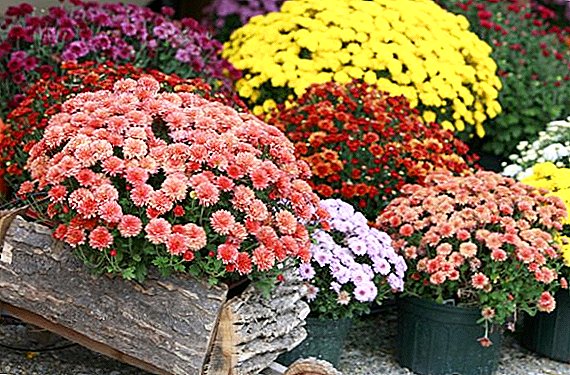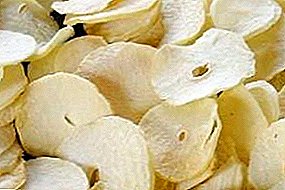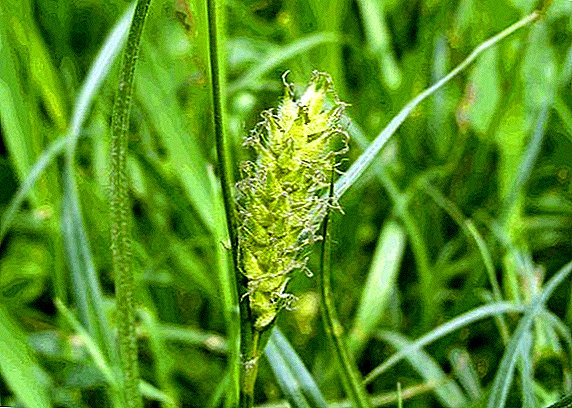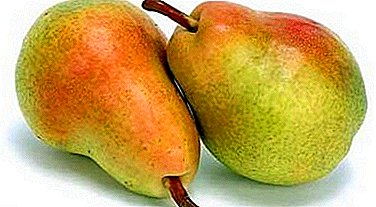 In modern conditions, when the pursuit of maximizing profits at minimal cost has led to the fact that the presence of antibiotics, growth stimulants and preservatives in animal products has become the norm, the question often arises that by continuing to move in this direction, humanity destroys itself because, as it turns out, such additives adversely affect our body. It is not surprising that gradually people begin to come to an understanding of the need to return to natural, natural standards of farming. Organic poultry farming is one of the manifestations of this process.
In modern conditions, when the pursuit of maximizing profits at minimal cost has led to the fact that the presence of antibiotics, growth stimulants and preservatives in animal products has become the norm, the question often arises that by continuing to move in this direction, humanity destroys itself because, as it turns out, such additives adversely affect our body. It is not surprising that gradually people begin to come to an understanding of the need to return to natural, natural standards of farming. Organic poultry farming is one of the manifestations of this process.
Who is the organic bird
Any bird is organic, but this term is usually applied to animals grown under conditions as close as possible to natural ones. The word "organic" in this case is synonymous with the concept of "environmentally friendly".
Did you know? The famous French agricultural company "Les Fermiers Landais" has been engaged in organic poultry farming for more than half a century. The owners keep their birds not in cages, but in special mobile wooden houses, where there is neither electric heating, nor lighting. These chicken coops are in the forest, and from time to time they are transferred to a new place, so that birds always have the opportunity to pick fresh greens on free grazing, and environmental damage is minimal (as you know, after a long walk of chickens, the land becomes completely devastated there are no insects or plants).
Not all organic farms can afford to create such ideal conditions for their wards, but the closer they are to nature, the more the rights of the owners of such farms will call their products organic.  A bird can be considered organic if it:
A bird can be considered organic if it:
- grown in natural environment;
- fed exclusively on natural food;
- did not receive antibiotics, growth stimulants and other nutritional supplements.
The role of grazing
It is known that large poultry enterprises use exclusively the cellular content of feathered herds.
This method of farming allows you to ensure complete mechanization of the process, to obtain the maximum number of livestock in the minimum area, to reduce the maintenance costs of the poultry house, and, as a result, to get the greatest yield of cheap but low-grade products (this applies to both meat and eggs).
It will be useful for you to read about how and what to feed chickens, quails, turkeys, ducks, geese, peacocks, as well as chickens, goslings and poults.
About how monstrous and inhuman at the same time are the living conditions of birds, the entrepreneur does not want to think. But the possibility of free walking for a bird is not only the pleasure of “stretching the legs”.  In the wild, animals, moving from place to place, have the opportunity to provide themselves with the most balanced diet, and the owner of an organic farm should strive to create conditions as close to natural as possible.
In the wild, animals, moving from place to place, have the opportunity to provide themselves with the most balanced diet, and the owner of an organic farm should strive to create conditions as close to natural as possible.
So, during free grazing, birds eat:
- insects whose hard shell is an excellent stimulator of digestion, because it contributes to an increase in stomach acidity and the digestive power of gastric juice (it is known, for example, that it is too soft food that stagnates in goiter, is a common cause of chickens refusing food and can even lead to the death of young animals) ;
- worms, small amphibians and other representatives of the fauna that provide the bird with a source of protein necessary for strong immunity;
- seeds of various plants that are very rich in nutrients (proteins, fats, carbohydrates);
- bitter field herbs, which also have a stimulating effect on digestion, as they increase the production of bile.
 At the same time, it is necessary to understand that all the poultry nutrients necessary for healthy development still cannot be obtained from the food they have independently obtained. Birds of a herd need to be fed, and if we are talking about compliance with the standards of organic animal husbandry, feed should be environmentally friendly.
At the same time, it is necessary to understand that all the poultry nutrients necessary for healthy development still cannot be obtained from the food they have independently obtained. Birds of a herd need to be fed, and if we are talking about compliance with the standards of organic animal husbandry, feed should be environmentally friendly.Important! Organic poultry farming is best combined with organic farming, it will provide livestock with high-quality food supply, which is especially important in Russia and other countries formed on the post-Soviet territory, where it is still quite difficult to find a reliable partner for the supply of organic cereals, legumes, sunflower and vegetables.
As a way out, you can try to wholesale the purchase of vegetables and cereals in small farms, where pesticides and chemical fertilizers are not used on such a large scale, but strictly speaking, in this case the bird raised on such feed cannot be considered organic, because to meet the high standard environmental safety of all raw materials used for the production of products, including feed, must be properly certified. 
The difference between organic poultry from the conveyor
What organic bird is different from the conveyor, we, in fact, have already explained. Let us try to systematize these differences for clarity.
| Indicator | Conveyor method | Organic way |
| Conditions of detention | In cages or closed poultry houses, with a high density, without access to free-range, natural lighting and fresh air | As close as possible to the natural, with the obligatory possibility of free-range |
| Nutrition | Compound feeds and special mixes with a high content of fats, starch, soy flour, etc. | Natural: organic (organic) cereals, legumes and vegetables, as well as seeds, herbs and insects, caught by the bird independently during grazing |
| Growth Hormones and Supplements | Are used | Banned |
| Antibiotics and other potent drugs | Used for prevention and treatment | Deliberately minimized, used only for treatment |
| Humane attitude to animals, concern for their comfort. | Not counted | Is a priority |
| purpose | Get a quick build-up of muscle tissue and speed up the time of slaughter or get the maximum number of poor quality eggs | To support the ecosystem, to prevent its further destruction, to obtain environmentally friendly products of high quality, without harmful additives |
| Price | Low | High |
 Organic poultry farming is based on five basic principles, none of which are taken into account in the conveyor method of producing poultry meat and eggs:
Organic poultry farming is based on five basic principles, none of which are taken into account in the conveyor method of producing poultry meat and eggs:- health;
- ecology;
- justice;
- humanism;
- care.
Did you know? The process of growing chicken in a “natural way” takes an average of 122 days and requires about 20 kg of feed. The use of conveyor production allows you to reduce the set time for a slaughter chicken to 42 days (three times), and the amount of feed to 4 kg (five times)!
Their implementation consists in the fact that even a slaughtered bird should not experience unnecessary suffering and cruel treatment, the producer must take care of preserving the planet as a whole, using as much as possible only natural methods of obtaining the finished product, without resorting to dangerous additives and technologies. 
Do I need to give vitamins
Vitamins are essential for maintaining all life forms. However, in the modern world, this concept considers two meanings: on the one hand, it means useful biological substances that ensure the normal functioning of the body, and on the other, chemical preparations containing such substances.
Important! Neither ready-made feeds containing vitamins, nor special vitamin complexes widely used in conventional poultry farming, should not be used on organic farms, since their composition directly contradicts the very idea of ecological animal husbandry.
Vitamins in the first sense of the word must be present in the diet of organic poultry, and she will receive them in full from natural food, if her food is properly organized. With chemical additives, the situation is completely different.  There is nothing wrong with the fact that the manufacturer prepares various feed mixtures and mash fodder for its feathered wards, ensuring that they contain the perfect balance of vitamins and minerals necessary for the bird.
There is nothing wrong with the fact that the manufacturer prepares various feed mixtures and mash fodder for its feathered wards, ensuring that they contain the perfect balance of vitamins and minerals necessary for the bird.
Find out what vitamins to give to broiler chickens and laying hens.
Particular attention should be paid to the composition of such mixtures in the winter, when neither greenery nor insects on grazing can be obtained.
And yet, the basic rule remains the same: since the conditions for keeping organic poultry are close to natural, her body should accumulate the necessary amount of vitamins just as it does in animals living in the wild. Therefore, such special bird does not need any special vitamin supplements, especially synthetic ones. 
How to deal with diseases
One of the main reasons that can cause a loss of livestock, especially for young stock, are diseases.
Did you know? At least 75% of existing antibiotics are used for both people and animals. At the same time, the uncontrolled use of these drugs leads to the formation of superbugs, on which modern medicines no longer work. Today, in the United States alone, 23,000 people die from bacteria caused by antibiotic-resistant bacteria each year. According to the forecasts of British scientists, by 2050 there will be at least 10 million such deaths per year in the world, which exceeds the current death rate from cancer.
Large industrialists have long found a way to solve a problem simply and radically: every chicken from the first days of its life receives a "horse" dose of antibiotics for preventive purposes, and in Russia, unlike in developed European countries, this process often takes place uncontrollably.  Unfortunately, every person living on Earth has to pay for this method of struggle for high profitability, regardless of whether he eats meat stuffed with antibiotics. In addition to the appearance of invulnerable bacteria, antibiotics contained in meat can also cause other side effects - allergic reactions, dysbacteriosis, etc.
Unfortunately, every person living on Earth has to pay for this method of struggle for high profitability, regardless of whether he eats meat stuffed with antibiotics. In addition to the appearance of invulnerable bacteria, antibiotics contained in meat can also cause other side effects - allergic reactions, dysbacteriosis, etc.
The very idea of organic poultry farming, based on the implementation of the above principles, is incompatible with the use of antibiotics in such a form as is done under conditions of conveyor production. With the diseases of the feathered herd, of course, need to fight. Just do it a little differently.
We advise you to get acquainted with the methods of treatment and prevention of diseases of chickens, turkeys, indoutok and geese.
Do I need to do prevention
A civilized way to prevent infectious diseases in poultry is not the preventive use of potent drugs, but the creation of conditions in which a healthy population with strong immunity can cope with an external threat.  Note that the very likelihood of a meeting of birds with a parasite in an organic farm is almost impossible to prevent, because the presence of free range initially implies contact with wildlife and all its “charms”.
Note that the very likelihood of a meeting of birds with a parasite in an organic farm is almost impossible to prevent, because the presence of free range initially implies contact with wildlife and all its “charms”.
Important! The pigeon, traditionally considered to be the bird of the world, is in fact a carrier of a huge number of diseases, including deadly ones for chickens, geese and other agricultural birds. Among such diseases are histoplasmosis, salmonellosis, toxoplasmosis, listeriosis and many others.
The only thing that remains for a bona fide producer of organic poultry is to fight to strengthen its immunity.
This goal can be achieved by using high-quality feed, observing sanitary conditions (dryness, cleanliness, spaciousness) and temperature conditions in the place where the livestock is kept, and also, of course, increased attention to the health of each individual, in order to timely detect the first signs of the disease and immediately separate the patients. birds from healthy. 
Should I Give Antibiotics?
The humane approach, which is one of the pillars of organic animal husbandry, suggests that the sick individual has the right to effective treatment.
Important! Antibiotics, coccystatics and other potent chemicals can be used in organic poultry farming, but only for the treatment of sick individuals and exclusively for the direct purpose of a veterinarian.
Since antibacterial drugs are still the most reliable way to overcome a huge number of dangerous diseases, it would be wrong to say that ecologically clean production precludes the use of such drugs.  This approach creates additional problems for the producer (for example, it is impossible to give medicine to the whole herd just in case, if several individuals have bloody diarrhea), but overcoming these difficulties is compensated by the much higher cost of organic meat.
This approach creates additional problems for the producer (for example, it is impossible to give medicine to the whole herd just in case, if several individuals have bloody diarrhea), but overcoming these difficulties is compensated by the much higher cost of organic meat.
Organic poultry farming has been successfully developing in the West for a long time, but gradually the understanding of the prospects of this trend comes to other parts of the world, including Russia.
We recommend reading about what antibiotics should be given to chickens.
Most likely, in the near future, the production of organic meat and eggs will crowd out the traditional conveyor forms, taking up an increasing segment of the market.  It seems that we simply have no other way to save this planet for our children than to give up cheap food stuffed with antibiotics and growth hormones.
It seems that we simply have no other way to save this planet for our children than to give up cheap food stuffed with antibiotics and growth hormones.
Did you know? One of the most prominent examples of legalized cruelty when dealing with a farm bird is the production of foie gras, the famous delicatesse francaise. To get the most fatty liver ("foie gras" in French and have "fatty liver") a young duck is thrown into a very narrow cage where it cannot move (until recently birds were nailed to the floor at all) and fed several times a day, pushing them into the larynx through a special probe in an amount three to ten times higher the norm. A huge number of birds dies before they reach a slaughter age and never provide a unique culinary masterpiece, which is so appreciated by rich gourmets.


